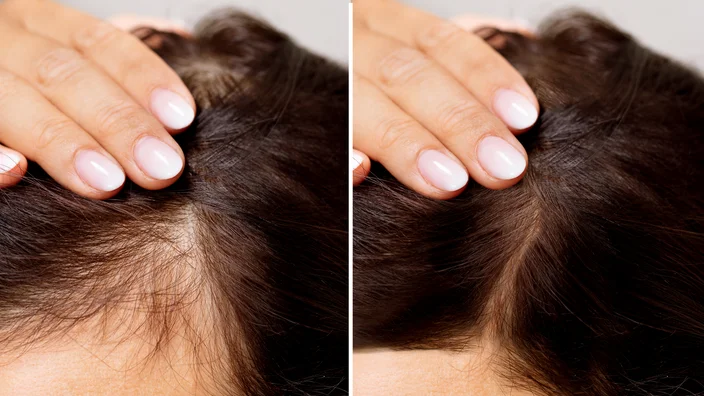Hair Loss Treatment - Abu Dhabi - Dubai
Hair loss can be a distressing condition for many people, but fortunately, there are various treatments available that can help slow down hair loss, stimulate hair growth, or cover up the appearance of thinning hair. Here are some common hair loss treatments:
- 1. Medications: Two FDA-approved medications for hair loss treatment are minoxidil and finasteride. Minoxidil is a topical solution that is applied directly to the scalp, and finasteride is an oral medication. These medications can help slow down hair loss and promote hair regrowth in some individuals.
- 2. Laser therapy: Low-level laser therapy (LLLT) uses red light to stimulate hair growth. It can be done at home using handheld devices or in specialized clinics. LLLT is believed to increase blood flow to the hair follicles and promote thicker, healthier hair.
- 3. Platelet-rich plasma (PRP) therapy: PRP therapy involves injecting a concentrated solution of platelets derived from the patient's own blood into the scalp. Platelets contain growth factors that may stimulate hair growth and improve hair density.
- 4. Hair transplant surgery: Hair transplant is a surgical procedure that involves removing hair follicles from areas of the scalp where hair is abundant (donor site) and transplanting them into areas with thinning or no hair (recipient site). It is an effective long-term solution for hair loss, especially for male pattern baldness.
- 5. Scalp micropigmentation (SMP): SMP is a non-surgical procedure where tiny dots of pigment are tattooed onto the scalp to create the illusion of hair follicles. It can be used to camouflage thinning hair, create the appearance of a fuller head of hair, or enhance the results of a hair transplant.
- 6. Hairpieces and wigs: Hairpieces, wigs, and hair extensions offer temporary solutions to cover up hair loss. They come in various styles, colors, and materials and can be customized to match your natural hair.
It's important to note that the effectiveness of these treatments can vary depending on the individual, the underlying cause of hair loss, and other factors. It's advisable to consult with a dermatologist or hair loss specialist to determine the most suitable treatment option for your specific condition.

